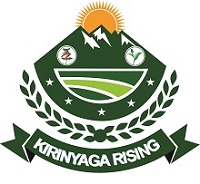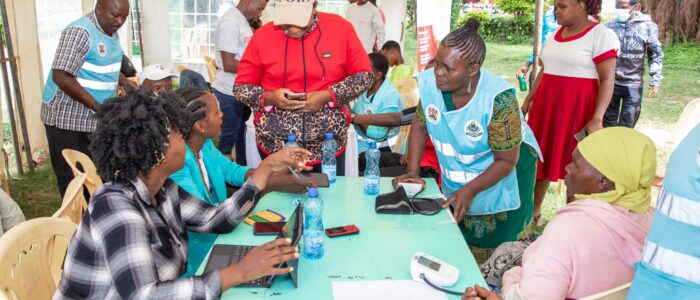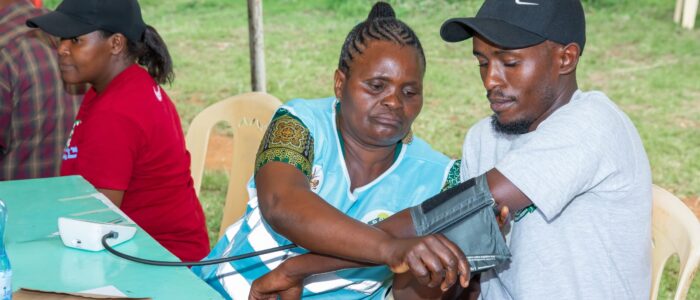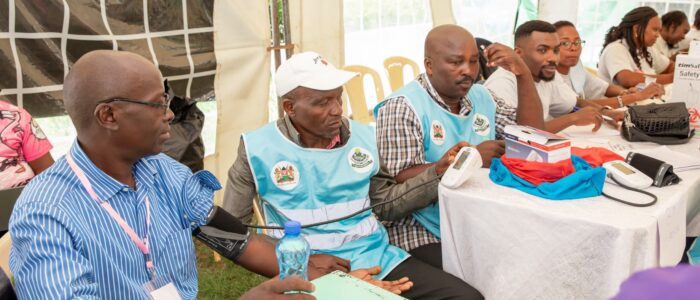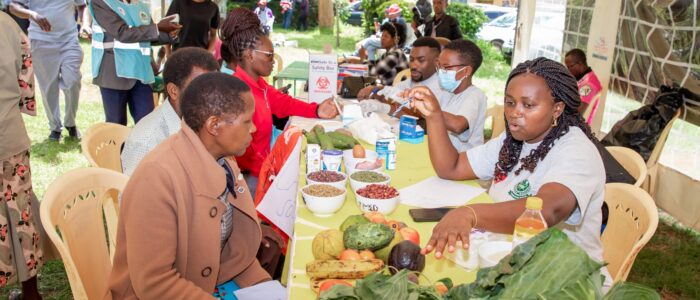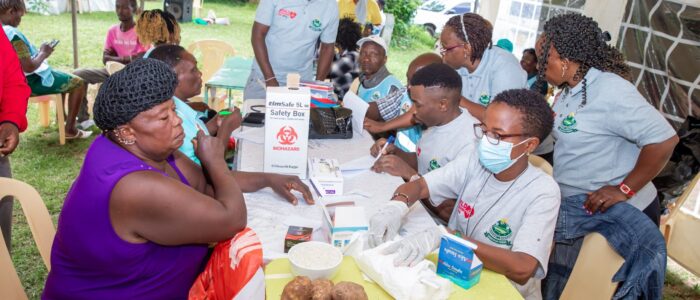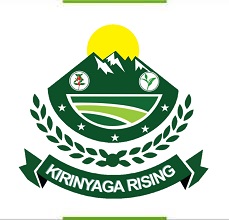Kirinyaga marks World Hypertension Day with calls for regular blood pressure screening
Kirinyaga County Government has called on residents to embrace regular blood pressure screening, warning that hypertension continues to silently claim lives across the region.
The appeal was made during the commemoration of World Hypertension Day at Jevanjee Gardens in Kerugoya. This year’s global theme, ‘Measure your blood pressure accurately, control it, live longer,’ formed the basis of the county’s awareness campaign.
Speaking during the event, the County Director of Health Services in Kirinyaga County, Dr. Esbon Gakuo, said the county is committed to raising awareness and improving access to care, noting that many people are unaware they are living with hypertension until complications arise.
“It is estimated that over 80,000 people are living with hypertension in Kirinyaga, but only 17,000 are currently accessing care and treatment. People should embrace regular screening to avoid complications such as stroke or even death,” Gakuo said.
Hypertension, often referred to as a “silent killer,” remains one of the leading risk factors for heart disease, kidney failure and premature death.
In Kirinyaga, over 17,000 cumulative cases have been reported over the years, with 2024 alone, registering 3,760 new cases up from 2,998 cases reported in the previous year. Dr. Gakuo pointed out that the rising burden of hypertension is linked to poor diets, sedentary lifestyles, alcohol abuse, and tobacco use. Hypertension is a leading cause of cardiovascular diseases, which are the second most common cause of death in Kenya.
Kirinyaga County has intensified efforts to manage hypertension through various interventions that include raising awareness on screening in order to put those affected in the required treatment and management plan.
Governor Anne Waiguru has been implementing a robust program aimed at creating awareness and enhancing treatment of hypertension among other lifestyle diseases. Her administration has integrated blood pressure monitoring in more than 75 health facilities across the county and set up specialized hypertension clinics at Kerugoya, Kimbimbi, Kianyaga, and Sagana Level 4 hospitals to offer focused care.
Each financial year, the county also allocates over Kshs. 83 million for non-communicable diseases out of which Kshs.58 million is dedicated to managing hypertension alone, a burden that may keep increasing if residents do not embrace preventive measures. Waiguru has consistently been calling on the county residents to embrace healthy lifestyles through proper diet and exercising. She is currently spearheading a fish farming project aimed increasing fish production so as to make it an affordable and available source of white meat for the residents.
Residents have also been urged to adopt healthier habits that include reducing salt intake, quitting tobacco, cutting down on alcohol, and increasing physical activity.
Additionally, Community Health Promoters (CHPs) have also been deployed to assess and screen people in villages, improving early detection at the grassroots level.
Alice Muriuki, a Community Health Promoter who has lived with hypertension for 15 years, shared her experience.
“I was diagnosed in 2015. With the help of doctors and medicine, I have managed the disease. I encourage others to go for screening and follow medical advice,” she said.
Another resident from Kerugoya, aged 58 years, Ruth Wanjiku, recounted her early struggles with denial. “At first, I refused to believe I had hypertension and didn’t take medication. But after attending clinics at Kerugoya Referral Hospital, I was educated on how treatment prevents stroke and kidney failure. Now I never miss a dose,” she said.
Globally, three out of every ten people live with hypertension. In Kenya, the national prevalence is 24 percent, with 29.2 percent of men and 27.9 percent of women affected. Alarmingly, 78 percent of diagnosed individuals in the country are not receiving treatment.
